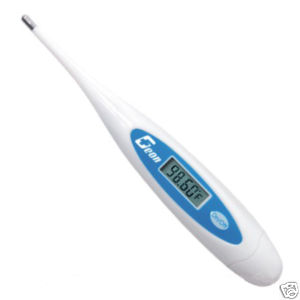When you are sleeping the body reaches its lowest temperature which is known as Basal Body Temperature (BBT) .
You should always take your BBT immediately after awakening and before any physical activity. Ovulation causes an increase of 0.5 to 1.0 degree in BBT which is a great way of estimating the day of ovulation.

Take Me to:
Why should I chart my basal body temperature?
I have an irregular cycle –should I chart my BBT
What is the average BBT?
Using an ovulation kit and charting BBT.
My BBT has stayed high after ovulation
Why should I chart my basal body temperature?
Just after you ovulate your BBT will rise and so charting your BBT can help you find out if and when you are ovulating which can help you time your insemination.
I have an irregular cycle –should I chart my BBT
Charting your BBT is ideal if your cycle is regular as you can begin to predict when you ovulate and therefore time insemination inthe days just before your temperature rise. If your cycle is irregular you should not rely on charting your BBT alone as it may be very difficult to predict your ovulation from month to month and you could miss your peak insemination days.
What is the average BBT?
Prior to ovulation the average range of BBT is between 97.0-97.7 and after ovulation it rises to 97.7- 99.0.
Using an ovulation kit and charting BBT.
It is useful to chart both your BBT and use an ovulation prediction test. Your ovulation kit will identify your LH surge which happens prior to ovulation and your BBT will rise during ovulation. You should therefore inseminate 24-48 hours after your LH surge is detected and 24-48 hours before your BBT increase.
My BBT has stayed high after ovulation
If your BBT stay’s at the raised level for over 18 days after ovulation there is a strong chance you are pregnant so take a pregnancy test!
Related Articles:
Getting Pregnant
Ovulation
Ovulation Test procedure
Basal Body Temperature
Luteinising Hormone (LH)
Follicle stimulating hormone (FSH)
Cervical Mucus
Home Insemination
Artificial Insemination
Natural Insemination